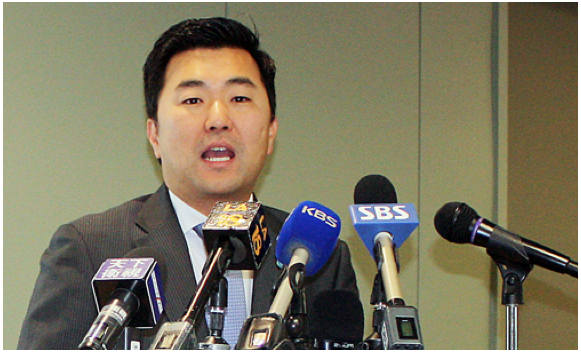CommentsDEEGAN ON LA-What would you do with millions of dollars, handed to you from various City revenue sharing schemes with very little restriction or strings attached for how to spend it? All City Councilmembers face the challenge of how to manage their “discretionary funds” budgets. If you are Councilmember David Ryu (CD4), you would ask your constituents how they feel the funds should be spent, thereby mixing community empowerment with a campaign promise to get rid of what he called “slush fund” politics. He’s just published a report on how that’s been going.
What are the surprises?
There are a few, like:
- How his money was spent -- the top 3 beneficiaries received 45% of all spending in the first two years he was in office.
- That after a torrid spending spree of $1.5 million in year 1, the pace was substantially less in year 2 with just $750,000 disbursed.
- There’s still some reporting opacity caused by the absence of a balance sheet showing revenue and expense, which would help explain the revenue differentials of years 1, 2 and now year 3 (where a fund of over $1 million appears to be available).
How did Ryu’s spending plan develop?
Some campaign pledges are just that -- loose indications of something to happen, but not a hard and fast promise that delivers results. In his IOU to the voters that helped get him as elected CD4 Councilmember, David Ryu said lots of things; one deliverable has been Ryu’s promise to provide transparency of how he spends his “discretionary” funds.
During his election campaign, Ryu made a pledge to “reform” what he called the practice of politicos using what he termed “secret slush funds.” He declared, “Changes in our discretionary funds process are long overdue. These funds disburse tens of millions of taxpayers’ dollars a year. Our district’s share of this money should not be spent secretly, arbitrarily or wastefully. We need full transparency and accountability, and we need to put neighborhoods first. Under the leadership and guidance of my District 4 Discretionary Funds Discretionary Funds Task Force, I want to follow the example of the council districts that use their discretionary funds more appropriately and effectively.”
What mechanism was set up to control spending?
Entering office, Ryu rolled out his Discretionary Funds Discretionary Funds Task Force with a mission to:
- To advise and review on the use of discretionary fund expenditures.
- To craft policies and guidelines to distinguish appropriate use of funds.
- To solicit community input and provide recommendations for specific long term discretionary fund projects.
- To review and recommend approval or disapproval of previously rescinded discretionary funds.
- To advise the Council Office on discretionary funding matters as requested.
The minutes of the Discretionary Funds Task Force are available at http://davidryu.lacity.org/discretionary_funds_task_force and then scrolling to the bottom of the page and clicking on Archive.
Where’s the accounting of how the funds were spent?
How has the task force been doing? A few weeks ago, on September 26, David Ryu published a line-item spending report called the CD4 Checkbook. It shows 50% less spending in the 2nd year than in his first year in office, and about $1.1 million available for his third year starting July 1.
This is his reported discretionary funds spending by line item.
- Year 1 (FY 2016 ending June 30, 2016) spent $1,557,487.
- Year 2 (FY 2017 ending June 30, 2017) spent $750,859.
- Year 3 (FY 2018 ending June 30, 2018) there are uncommitted funds of $1,163,307.14 available as of 8/31/17, according to a page 5 disclosure.
Where has David Ryu been spending these discretionary funds?
The report shows that the top three expenses, out of 182 checks he cut, accounted for almost half (45%) of his total discretionary spending. He spent $1,002,850 of $2,208,346 in the first two years this way:
- $500,000 for the De Anza Bike Trail along the LA River in Sherman Oaks that supports a project of Mayor Garcetti.
- $302,850, including overtime, for the replacement of Hancock Park concrete roadways along 4th Street between Las Palmas and McCadden, and the intersection of Las Palmas and Oakwood.
- $200,000 for the acquisition, in Griffith Park, of Lee property.
Where do the funds come from?
All Council offices receive discretionary funding that comes from sources such as AB 1290 funds from property taxes collected in redevelopment areas within their districts. Public property sales also throw off revenue to Council offices, as do franchising fees from oil pipelines, and advertising on city-owned bus shelters.
How do you get funding for your projects in CD4?
Discretionary funds can legally be used for any public benefit. This is generally what David Ryu’s Discretionary Funds Task Force will consider:
- traffic and transit improvements.
- neighborhood beautification projects.
- neighborhood or community events (e.g. block parties).
- infrastructure improvements within the district boundaries.
Go to this link for an application:
What do you think? Are transparent discretionary funds spending plans a good idea? Should the City Council make this a policy for all Councilmembers?
Please take a moment and share your opinion about these issues by taking the brief poll below and then press “view” to see how your responses compare with others.
[sexypolling id="31"]
[sexypolling id="32"]
[sexypolling id="33"]
[sexypolling id="34"]
(Tim Deegan is a long-time resident and community leader in the Miracle Mile, who has served as board chair at the Mid City West Community Council and on the board of the Miracle Mile Civic Coalition. Tim can be reached at [email protected].) Edited for CityWatch by Linda Abrams.
-cw
















